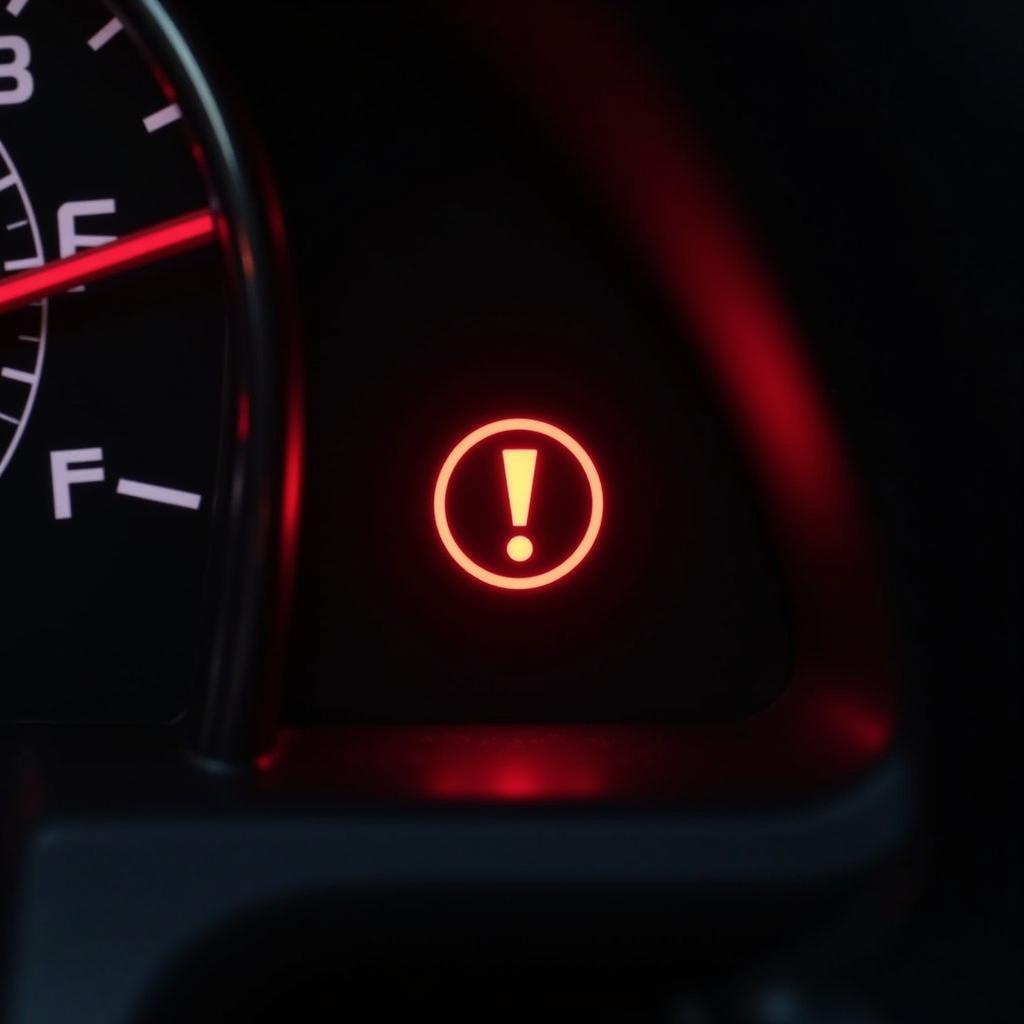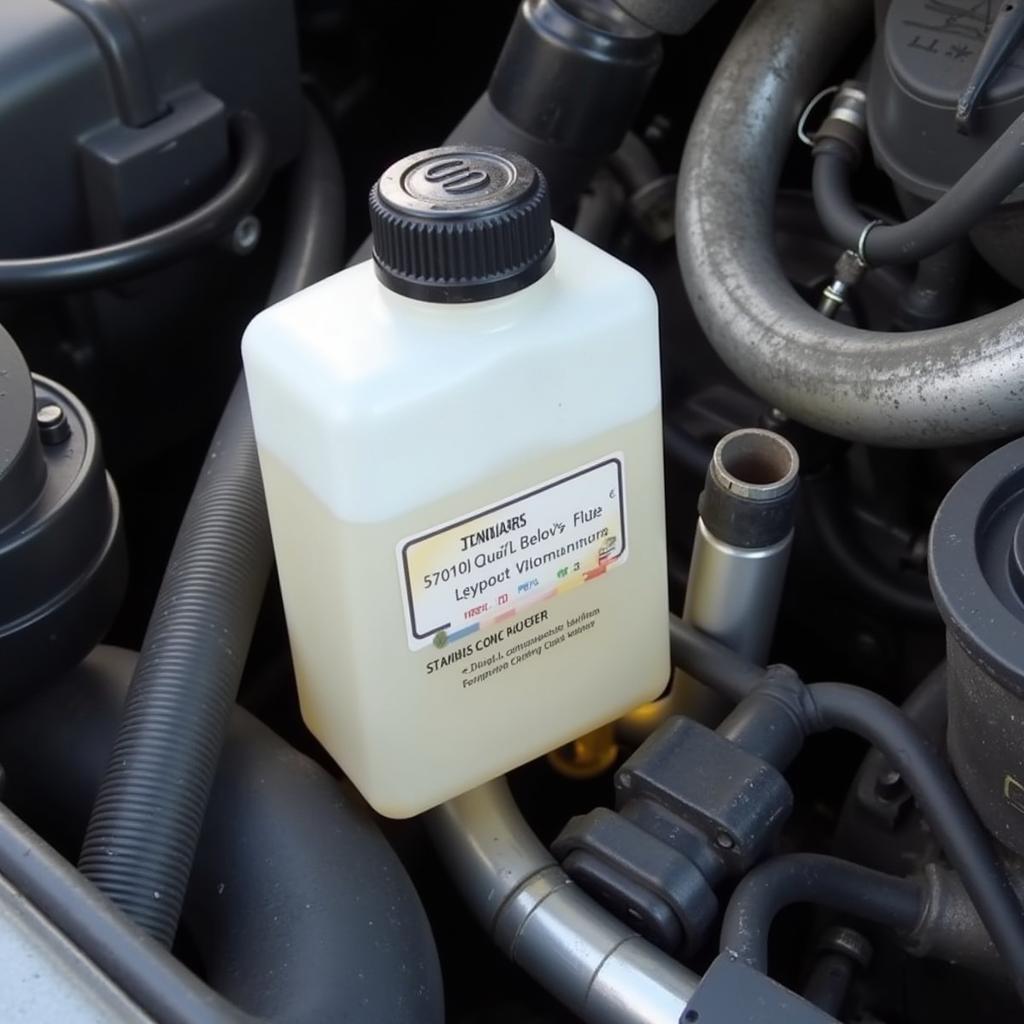The 2004 Mini Cooper brake pad warning light is designed to alert you when your brake pads are wearing thin and need replacing. Understanding how to reset this light after replacing your brake pads is essential for maintaining your Mini’s safety and performance. This article will guide you through the process of resetting the 2004 Mini Cooper brake pad warning light, covering common issues, diagnostic tips, and preventative maintenance.
Similar to mini cooper s brake pad warning light reset, the process for a 2004 Mini Cooper involves a few key steps. Let’s dive into the specifics.
Understanding the Brake Pad Warning Light
The brake pad warning light is a crucial part of your Mini Cooper’s safety system. It illuminates when the brake pad wear sensors detect that the pads have reached a minimum thickness. Ignoring this warning can lead to severe brake damage and compromise your safety.
Why Does the Light Come On?
The light is triggered by sensors embedded within the brake pads themselves. These sensors are small metal tabs that make contact with the brake rotor when the pads wear down to a critical level, completing a circuit and illuminating the warning light on your dashboard.
Resetting the 2004 Mini Cooper Brake Pad Warning Light
After replacing your brake pads, it’s essential to reset the warning light. While the light may go off on its own in some cases, it’s best practice to manually reset it to ensure the system is functioning correctly. There are two primary methods for resetting the brake pad warning light on a 2004 Mini Cooper: using a diagnostic tool and manually manipulating the sensor.
Using a Diagnostic Tool
A diagnostic tool, also known as a scan tool, is the most reliable way to reset the brake pad warning light. These tools connect to your car’s onboard computer and allow you to access and clear fault codes, including the brake pad warning light.
Manually Manipulating the Sensor
In some cases, you may be able to reset the light by manually manipulating the brake pad wear sensor. This involves disconnecting the sensor connector and shorting the two wires together. However, this method is not always reliable and is not recommended unless you are comfortable working with your car’s electrical system.
Common Issues and Troubleshooting
Sometimes, the brake pad warning light may illuminate even after replacing the brake pads. This could be due to a faulty sensor, damaged wiring, or an issue with the car’s braking system.
Faulty Sensor
A faulty brake pad wear sensor can trigger the warning light even if the brake pads are new. Replacing the sensor is usually a straightforward process and can resolve the issue.
Damaged Wiring
Damaged wiring in the brake pad sensor circuit can also cause the warning light to malfunction. Inspect the wiring for any signs of damage, such as cuts or fraying, and repair or replace as needed.
Preventative Maintenance
Regular brake inspections are crucial for maintaining your Mini Cooper’s safety and performance. Check your brake pads regularly for wear and tear, and replace them before they reach the minimum thickness.
This is similar to how you would address toyota electronic brake system warning light issues, where proactive maintenance is key.
When to Consult a Professional
If you’re uncomfortable working on your car’s brakes or are unable to reset the warning light, it’s best to consult a qualified mechanic. A professional can diagnose and repair any underlying issues with your braking system.
“Regular brake maintenance is not just about safety, it’s about preserving the overall performance and longevity of your Mini Cooper,” says John Miller, a certified automotive technician with over 20 years of experience. “Addressing brake issues promptly can save you from costly repairs down the road.”
Conclusion
The 2004 Mini Cooper brake pad warning light is a vital safety feature. Understanding how to reset this light after replacing your brake pads is essential for ensuring your car’s safety and performance. While you can attempt to reset the light yourself, consulting a professional is always recommended if you encounter any difficulties. Regular brake maintenance, including timely brake pad replacements, is key to preventing future issues and keeping your 2004 Mini Cooper running smoothly. Don’t ignore that warning light! Address it promptly to ensure your safety and the longevity of your vehicle. For more information on brake warning lights, check out our article on the 2004 mini cooper brake warning light.
“Consistent brake checks are crucial for catching potential problems early,” adds Sarah Chen, another experienced automotive technician. “A small investment in preventative maintenance can prevent major headaches and expenses later on.” Similar insights can be found in our article on mini cooper s brake pad warning light. You can also learn more about the general meaning of various warning lights, including the seat belt warning light meaning.
FAQ
-
How often should I check my brake pads?
You should visually inspect your brake pads every six months or 10,000 miles. -
What happens if I ignore the brake pad warning light?
Ignoring the warning light can lead to severe brake damage and compromise your safety. -
Can I drive with the brake pad warning light on?
It’s not recommended to drive with the warning light on. Have your brakes inspected and repaired as soon as possible. -
How long do brake pads typically last?
Brake pad lifespan varies depending on driving habits and conditions, typically lasting between 30,000 and 70,000 miles. -
Why is my brake pad warning light still on after replacing the pads?
A faulty sensor, damaged wiring, or other braking system issues could be the culprit. -
Is it expensive to replace brake pads?
Brake pad replacement costs vary but are generally affordable compared to other brake repairs. -
How can I prevent premature brake pad wear?
Avoid aggressive driving, coasting to stops, and ensure your brakes are properly maintained.


